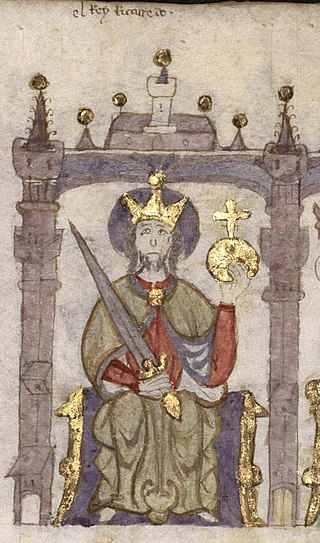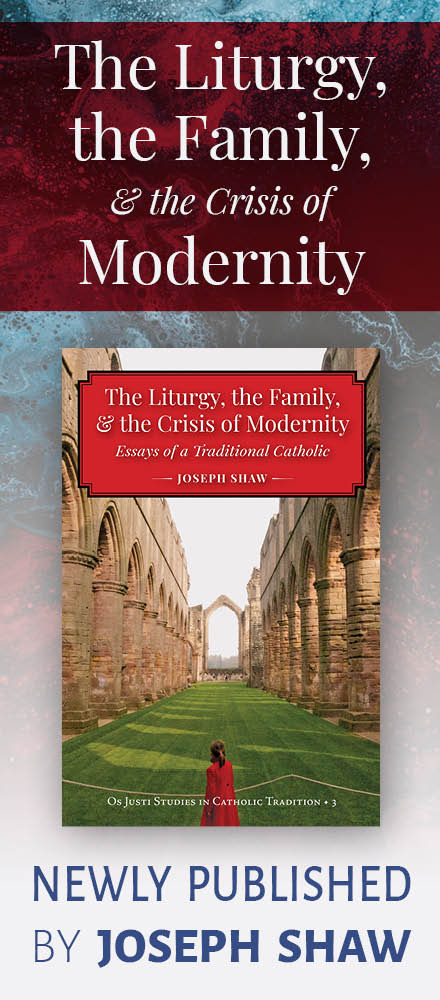Lost in Translation #115
For better or for worse, no discussion of the Nicene Creed would be complete without a discussion of the Filioque. When the topic has come up on this website in the past, several Ortho-bros have claimed that the Filioque was the camel’s nose under the tent for the Novus Ordo. Such brilliant deductions are a reminder of why New Liturgical Movement shut down its commentary feature for a while.
The Filioque, the formulation that the Holy Spirit proceeds from the Father and the Son rather than through the Son, is the product of the Third Council of Toledo in AD 589, which added the term to the Creed to counter Arianism. The move worked, prompting King Reccared I and several other Arians in his Visigothic Kingdom to become Catholic. From Spain, the Filioque spread throughout the Latin-speaking West until it was finally accepted by Rome in 1014. The Great Schism occurred forty years later, and the Filioque has been the subject of controversy between East and West ever since.King Reccared on the Filioque: “Works for me.”
And the controversy will never be resolved until we turn,
not to theology, but to language. One of the best explanations of the controversy that I have come across was posted online ten years ago. I copied
and pasted the author’s explanation, but unfortunately I did not copy and paste
his name. If anyone knows the identity of this astute grammarian, please let me
know. Here are some of his insights:
“The Greek word ἐκ-πορεύειν (“to walk out
of”) gives an answer to the question: whence does the Spirit come? Where has He
got His origin? Who is His ultimate source? The Latin word pro-cedere (“'to walk
forth”) answers the question: whither does the Spirit go (once He has emanated
from the Father and through the Son)?
“Furthermore, in the Greek version, the
procession of the Spirit is expressed as a participle, which closely yokes
together the motion and its source syntactically, the Father being attribute
[sic] to the procession, giving the notion of a still-standing image
illustrating a direct relation between source and motion, like in a diagram. In
the Latin version though, the procession is expressed in a relative clause, the
proceeding being the predicate, to which the source is indicated as an adverbial
qualification. This construction lays much more weight on the process of the
proceeding than on the relation of the proceeding and its source: here, the
forthgoing of the Spirit is focused as an activity, and the sources of the
motion, while not being downgraded as mere extras, are rather juxtaposed as a
clarification of circumstances.
“It is true that, in the Latin version, both
Patre (“the Father”) and Filio (“the Son”) are in the ablative case and both
depend on ex (“out of”); but from this it does not follow that the Father and
the Son be the sources of the Holy Ghost in an equal fashion. The perspective of
the Latin phrase is rather that of somebody turning back to see what lies behind
him from his point of view, and that would in our case be both the Father and
the Son, as our Wanderer has already come out of the Father and passed through
the Son on his way.
“These different perspectives are fundamental characteristics
of the two languages, Latin and Greek: Latin is a very subjective and practical
language and often looks both on the process and the end; Greek, however, is a
highly systematic language, and it is much more apt to Greek thinking to freeze
certain situations in time and meditate their origins and the relations of their
parts. It also tends to take an objective standpoint to watch things from a
remote position, an idea completely foreign to ancient Latin.
“Both versions are
correct; in the Latin version, the Filioque is not necessary, but in no way
false; it adds a further truth of faith to the Creed, which is beautiful and
worthwhile contemplating. However, to add a filioque to the Greek version would
doubtlessly end up in a heretic statement, as τὸ ἐκ τοῦ Πατρός τε καὶ ἐκ τοῦ
Υἱοῦ ἐκπορευόμενον would mean that the Holy Ghost proceed both from the Father
and from the Son in the same manner, which is certainly not true.
“It is
erroneous to say the Son has no part in the procession (as some less-catechized
Orthodox sadly do) and it is also wrong to say that the Holy Spirit proceeds
from the Son in the same manner He proceeds from the Father (as most Orthodox
think we do). Both the Greeks and Romans believe the same truth upheld at the Seventh Ecumenical Council, but the Creeds are different (the Greek Catholics use the Greek Creed). It took a couple Greeks without sufficient knowledge of Latin
(like Photios) to start the trouble, and a few ignorant Westerners (like the
pompous Cardinal Humbert) to exacerbate it.”
I add two points to this author’s fine observations, both again in reference to language.
First, thanks to conjunction and verb choice, the dual procession from Father and Son is present in the so-called Athanasian Creed (A.D. 450), which was said either weekly or daily in hundreds of churches in the West from the Carolinigian era forward. The prevalence of this creed in the West means that the churches of the East were in communion with hundreds of churches in the West that professed the dual procession weekly or daily for well over 200 years, and nobody had a problem with it until people like Photius came along. The Athanasian Creed states:
[W]e venerate one God in the Trinity, and the Trinity in Oneness. . . . The Father was not made nor created nor begotten by anyone. The Son is from the Father alone, not made nor created, but begotten. The Holy Spirit is from the Father and the Son, not made nor created nor begotten, but proceeding.
Our earliest copy of this Creed is in Latin, which uses procedere for “proceeding.” And although it was probably not written by Athanasius, it does reflect the theology of Alexandrian Church Fathers such as Cyril, who affirms the Filioque and who uses the Greek προϊέναι for “procession” rather than the more specific ἐκ-πορεύειν (“to walk out of”) of the Nicene Creed.
Athanasius: “I did not write the Creed named after me, but I have no problems with it.”
The final point I would make about the language is the choice of conjunction. The copulative participle -que is
added to the end of a word and means “and.” The author could have just as easily
used et, ac, or atque to achieve the same result but with one exception:
classically, -que denotes a closer connection than et. The Father and Son are
not simply involved in the procession of the Holy Spirit, they are intimately
involved. Since the Holy Spirit is Love, it is appropriate that Its procession
is the result of such intimacy.























